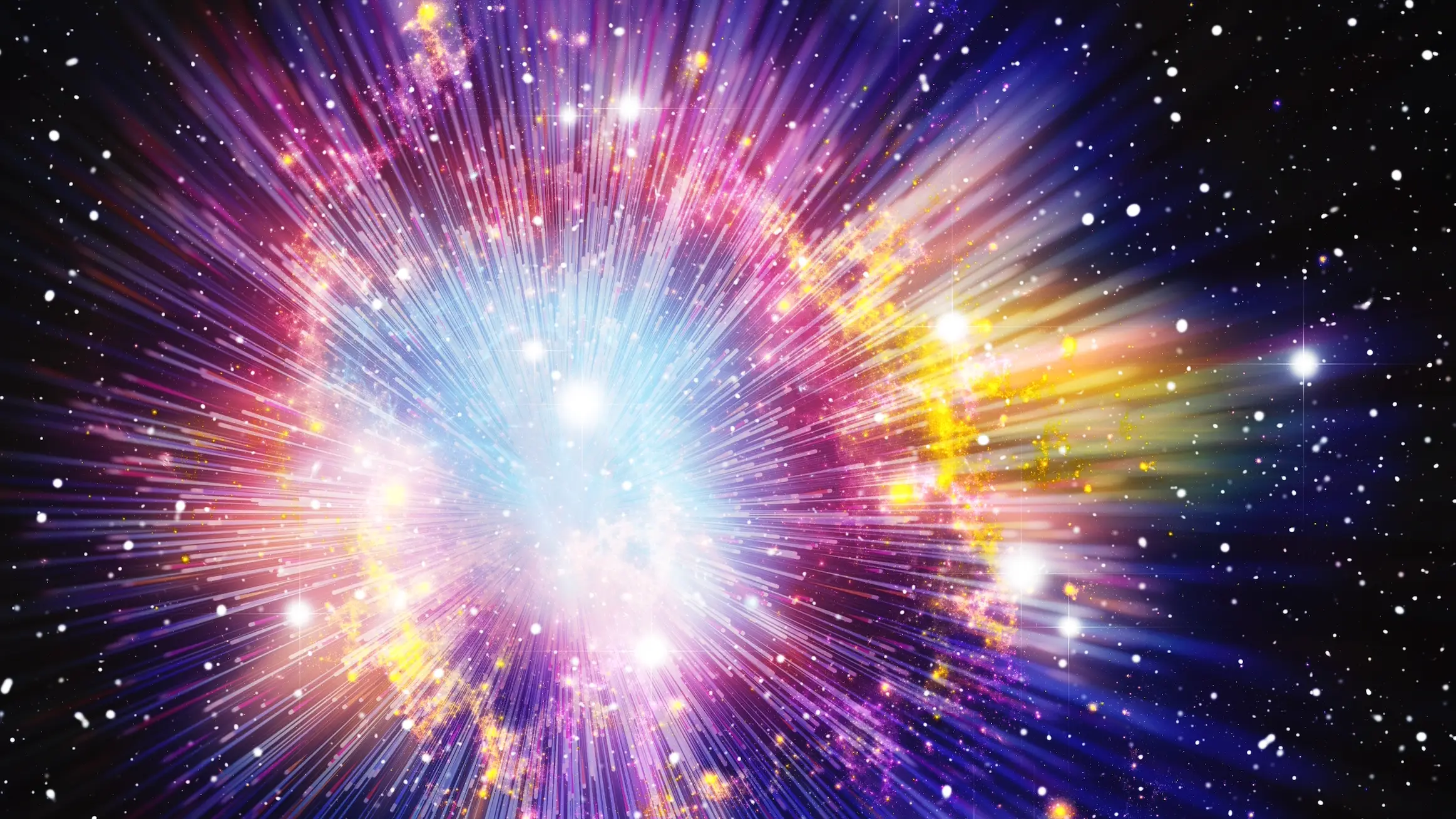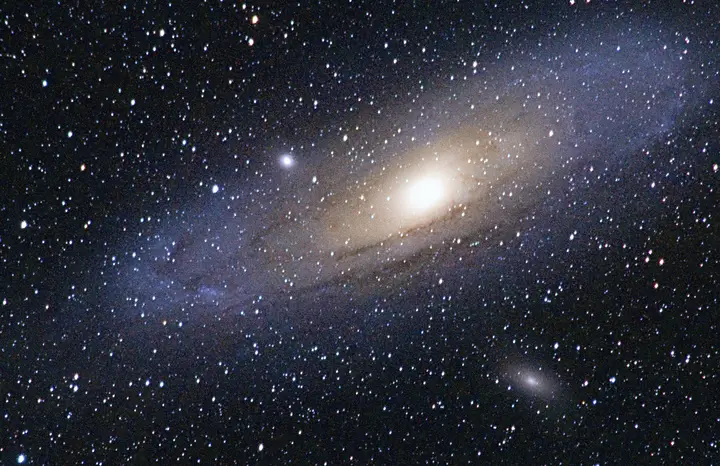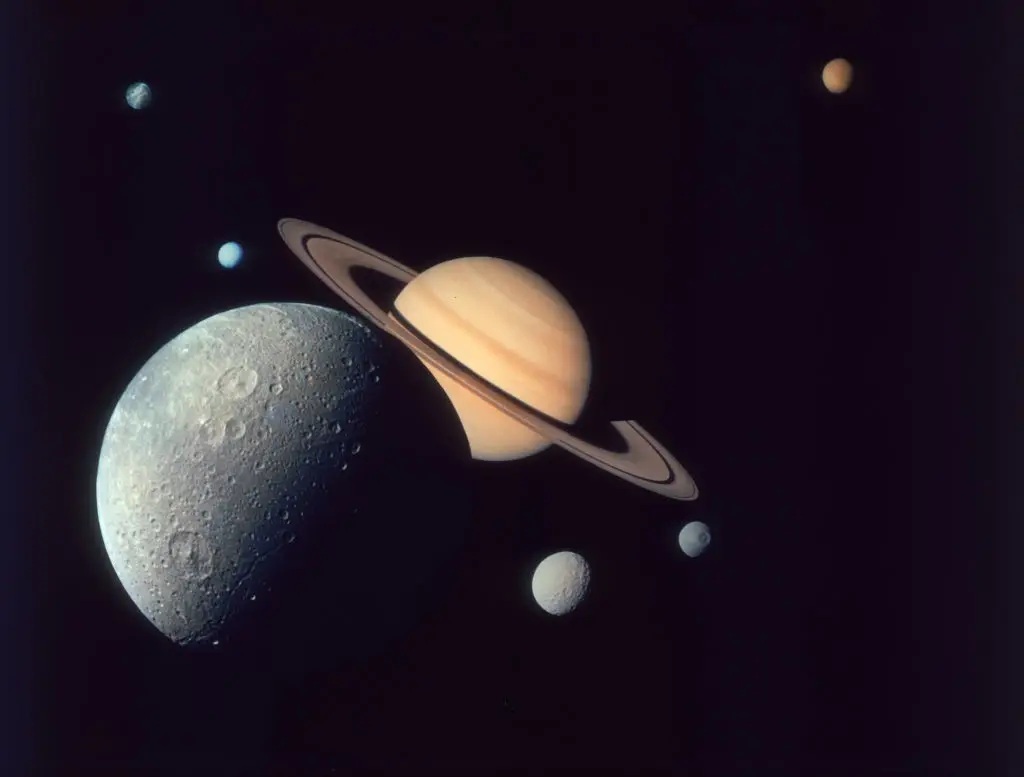
A new study has revealed humanity's biggest fear - the universe has a 'death date' and scientists reckon they have a pretty good idea when it'll happen.
But before everyone rushes to the shops to start stockpiling loo roll and bunkering down ahead of the collapse of society, it's important to note we've got a fair bit of time before the end arrives.
And by a lot of time, I'm talking approximately 20 billion years.
But that isn't to say that the discovery isn't a shocking one - seen as though we've just found out our universe will eventually start shrinking, rather than continuing to expand, as we've long believed.
Advert
So, let's get into it, shall we?
New study reveals the ‘death date’ of the universe
Published by physicists from Cornell University, Shanghai Jiao Tong University and other institutions, the study has claimed that our universe will reach maximum expansion and begin to shrink in around seven billion years.
The researchers concluded that the universe will essentially start to reverse all the hard work it put in towards expanding at this point, instead contracting until there is nothing left.
This will supposedly all take place when the universe turns 33.3 billion years old, or approximately, anyway. So, considering our old girl is currently 13.8 billion years old, we've still got about 20 billion years to go before it all goes to pot.

What is the ‘Big Crunch’ and what will happen?
The boffins reckon that the universe will bow out the same way it began - in a 'big' way.
That's why they've dubbed their idea of how the universe meets its demise the 'Big Crunch', as it's essentially a reverse of the 'Big Bang'.
According to the experts, the universe expands in a similar fashion to a rubber band... and anyone who's mucked around with one of those will know that eventually, the elastic force becomes stronger than the expansion. As a result, it snaps back together.
Apparently, that's exactly what's going to happen to the universe too, as although it will continue to gradually expand, it will eventually be overpowered by gravitational forces and other pressures.
Researchers presume that the universe will swell to its maximum size - which is about 69 percent larger than it is right now - in about seven billion years, before the 'Big Crunch' then ensues.

How did scientists determine the universe’s 'death date'?
Scientists have been able to take a stab at the universe's 'death date' as they've been keeping a close eye on the behaviour of 'dark energy'.
Dark energy is a term used by boffins which refers to the mystery propeller which causes the universe to expand at a faster rate over time - but no one knows exactly what it is.
NASA explains: "Nine billion years after the universe began, its expansion started to speed up, driven by an unknown force that scientists have named dark energy. But what exactly is dark energy?
"The short answer is: We don't know. But we do know that it exists, it’s making the universe expand at an accelerating rate, and approximately 68.3 to 70% of the universe is dark energy."
Even though the world is still in the dark - pardon the pun - about what this dark energy is, scientists have been monitoring whether it is increasing, decreasing, or a constant force.
In terms of this latest research which allowed experts to calculate the universe's 'death date', they mulled over data from a series of astronomical surveys.
This included the Dark Energy Survey and the Dark Energy Spectroscopic Instrument, and by digging into this data, the boffins concluded the Big Crunch will take place in about 33.3 billion years.
Topics: Space, World News, Science